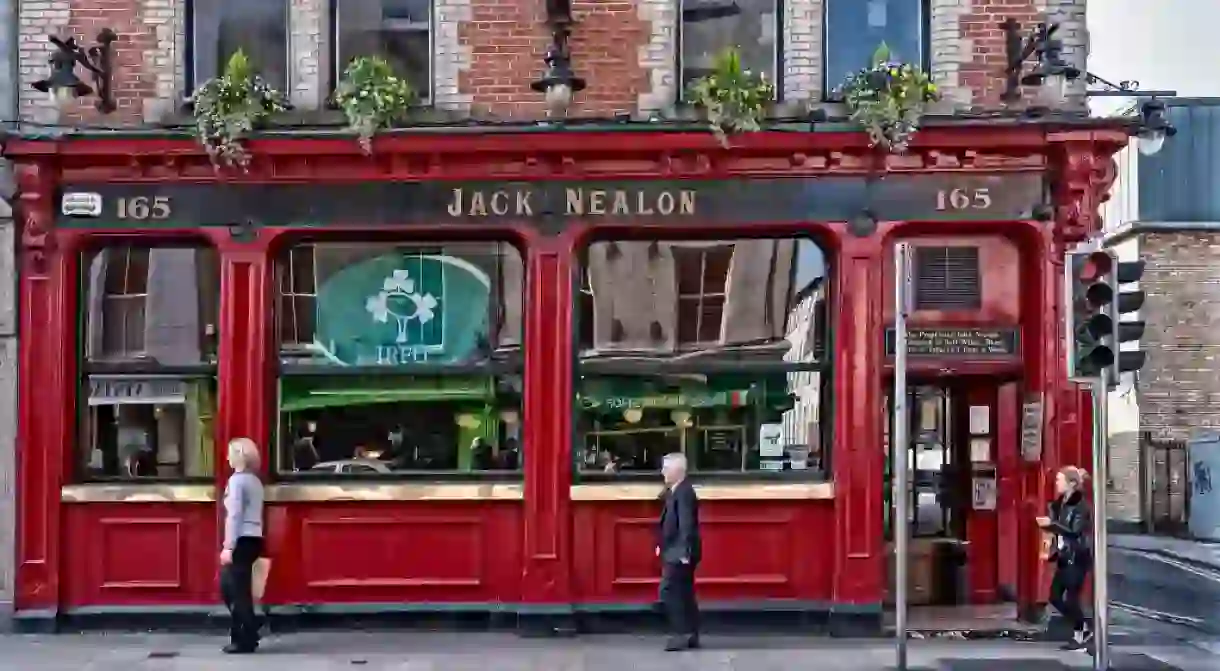How Pubs In Ireland Literally Saved The Country's Economy

Ireland’s economy has been through turbulent times recently. Hit hard by the global financial crisis in 2008, the country went swiftly from a period of buoyant financial success, the ‘Celtic Tiger’, into a crisis that involved pricey bank bailouts, the collapse of property values, and many young people pushed into leaving the country to find work elsewhere.
At one point, there were even rumours that cash machines might simply stop working. That didn’t happen even at the peak of the modern day crisis, which saw its worst moments between 2008 and 2011. Facing a different type of economic crisis in 1970, however, Ireland faced exactly that problem: the banks stopped operating.
Bank workers went on strike for six months in the spring and summer of 1970, closing their doors, and in doing so creating a crisis in availability of cash.
With the banks out of commission, pubs around Ireland became de facto banks. Workers took their salary payments (received in the form of cheques) into the local bar, converting them into cash from the till. The advantage to the pub was clear: many would cash in their pay, stay for a couple of drinks and so fuel the pub in the process. For the workforce, the pubs’ unofficial system allowed paying rent, bills, and pretty much every other expense.

The 70s dispute occurred between the Bank Official Association and the banks themselves and was so heated that the two parties even differed on what exactly they were arguing about, with the banks saying the workers were on strike, and the Bank Official Association saying that the employees had been locked out of their workplaces.
As the strikes went on, pubs – still regarded as key community hubs in most parts of Ireland today – stepped into the role of cashing those pay cheques quite naturally, having already played a similar role for staff in industries such as docking before the staffing issues hit the banks earlier in the year.
While the impact is thought to have been lessened substantially by stand-in facilities, Ireland did still suffer from the 70s strikes, which are seen as contributing factors to areas including inflation and rampant fraud. Eventually, people had to create their own cheques, as with the banks out of action and unable to replenish stocks, the valuable pieces of paper were no longer available.

Cheques penned on the back of cigarette packets and toilet paper were reported to the Irish Independent years later, alongside scams that involved writing out promises of payment far beyond a person’s means, in effect creating a form of credit towards risky investments.
Ireland is a different place today to the early 70s, and despite its more recent financial issues, a real hub of the European banking sector that hosts a disproportionately large number of complex and technical banking services, largely in Dublin’s International Financial Services Centre (IFSC). Of course, pubs are still widely seen as an essential element of the culture.
Listen to local accounts of how pubs saved Ireland’s economy in the 1970s, via a short BBC World Service audio documentary, part of the ‘Witness’ series, here.













